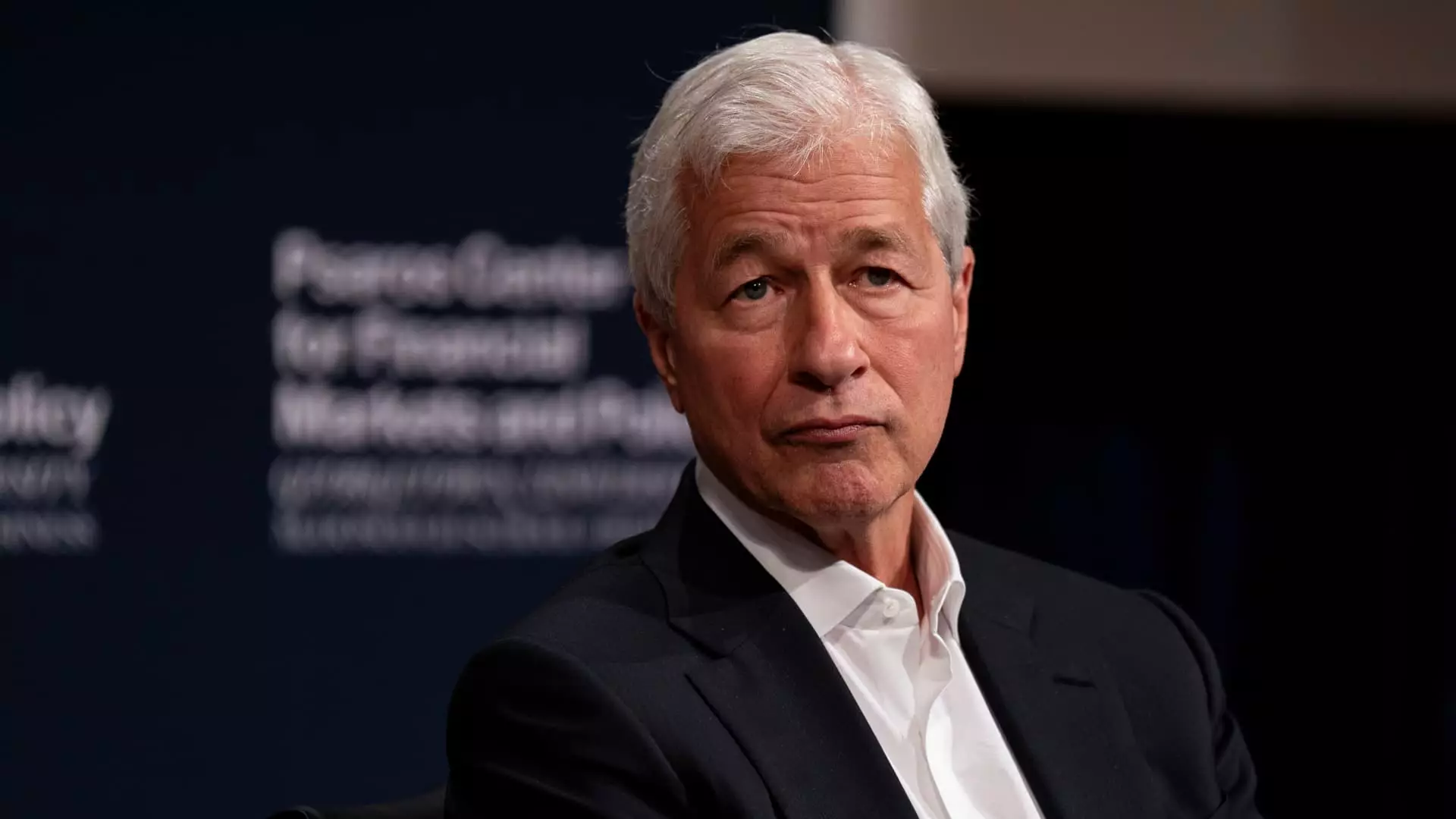In recent discussions around trade policy, insights from prominent business leaders such as Jamie Dimon, CEO of JPMorgan Chase, shed light on the intricate balance between tariffs and the broader economic landscape. While tariffs are often met with apprehension—especially in light of fears regarding a potential global trade war—the perception among certain executives is that they can serve as a tool for enhancing national interests. Dimon’s comments, made during a CNBC interview at the World Economic Forum in Davos, reflect a nuanced viewpoint that suggests tariffs, if strategically applied, could yield beneficial results for the United States.
Central to Dimon’s argument is the assertion that national security should take precedence over concerns about inflation. He articulated that even if tariffs lead to a slight increase in inflation, they might be justified if they fortify the country’s security frameworks. This perspective challenges the conventional wisdom that inflationary pressures are always detrimental to economic health. Dimon emphasized that tariffs are merely tools—economic instruments that can be deployed effectively or ineffectively depending on the intent behind their implementation. The crux of his argument revolves around a major underlying question: can tariffs be utilized to re-engage trading partners and secure more favorable agreements for American interests?
As President Trump contemplated imposing tariffs on various trading partners—including Canada, Mexico, China, and the European Union—Dimon signaled a level of optimism. He argued that the application of tariffs could usher parties back to the negotiating table in pursuit of improved trade terms, thus possibly averting long-term economic strife.
President Trump’s administration has made waves by suggesting protective tariffs that target nations with which the U.S. runs significant trade deficits. His recent assertions indicate a firm stance on readdressing unfair trade practices, particularly aimed at improving the imbalance created by substantial surpluses in EU trade. The statistics are striking, with the U.S. recording a $214 billion deficit with the EU alone as of November the previous year. Such figures emphasize the urgency with which the administration may approach these trade dynamics.
The proposed tariffs—such as a 10% levy on Chinese imports and a more considerable 25% on goods from Canada and Mexico—are positioned as a mechanism to renegotiate terms under agreements like the U.S.-Mexico-Canada Trade Agreement. This forthcoming review is set to unfold in July 2026, offering a pivotal moment to reshape trade relations.
In light of these developments, Dimon’s remarks highlight the complex interplay between tariffs and the economy. Historically, broad-based tariffs have not immediately led to rampant inflation, with rates remaining under 2.5% throughout Trump’s first term. However, observing recent fluctuations, it becomes evident that tariffs also impact currency valuation, with the U.S. dollar exhibiting declines as tariff discussions intensify. Dimon notes, “Tariffs can change the dollar,” establishing that the implications of trade policy extend beyond immediate price changes into the broader economic fabric of the nation.
Notably, Dimon is not alone in expressing cautious optimism regarding tariffs. Goldman Sachs CEO David Solomon also acknowledges that recalibrating trade agreements could positively affect U.S. growth. He emphasizes the importance of thoughtful negotiation tactics and expresses hope that these adjustments can lead to constructive outcomes.
The Path Forward: Balancing Risks and Benefits
As businesses and policymakers navigate this maze of trade reforms, the fundamental challenge remains: will the strategic deployment of tariffs serve as a catalyst for better trade relations, or will they provoke retaliatory measures that could lead to undesirable economic outcomes? Effective management of tariffs will require agility, foresight, and an understanding of both domestic priorities and global market dynamics.
While the potential for tariffs to act as a protective economic tool exists, it remains imperative for decision-makers to weigh the complexities of international trade relations against the pressing demands of national security and domestic economic stability. The upcoming months will undoubtedly be critical in shaping the path forward and determining whether this bold approach leads to the desired reevaluation of trade norms.

